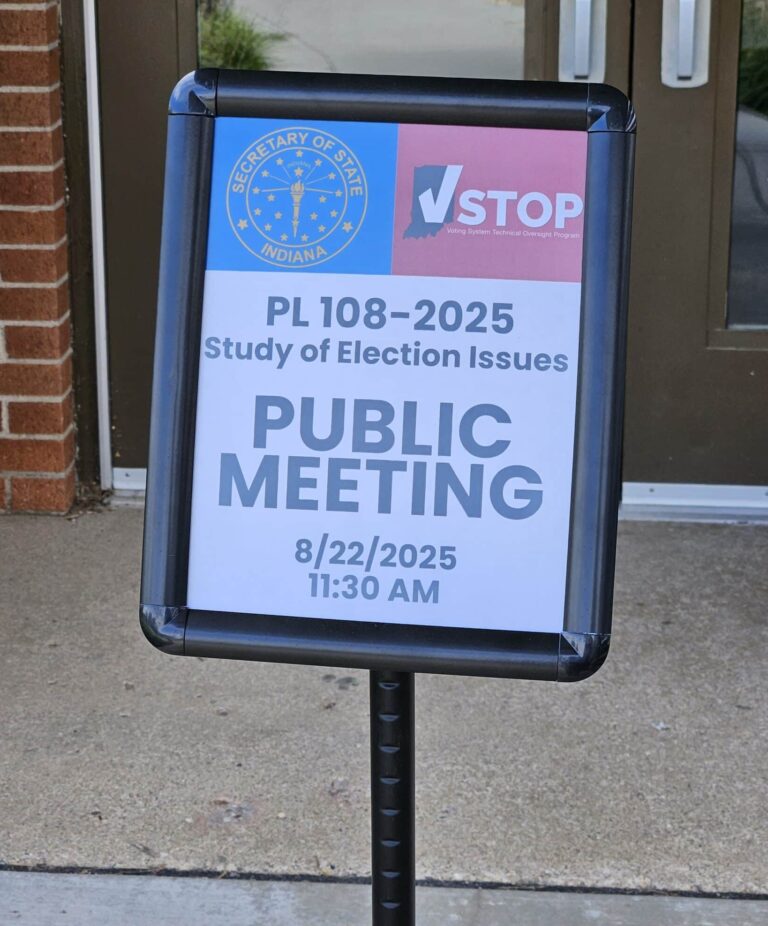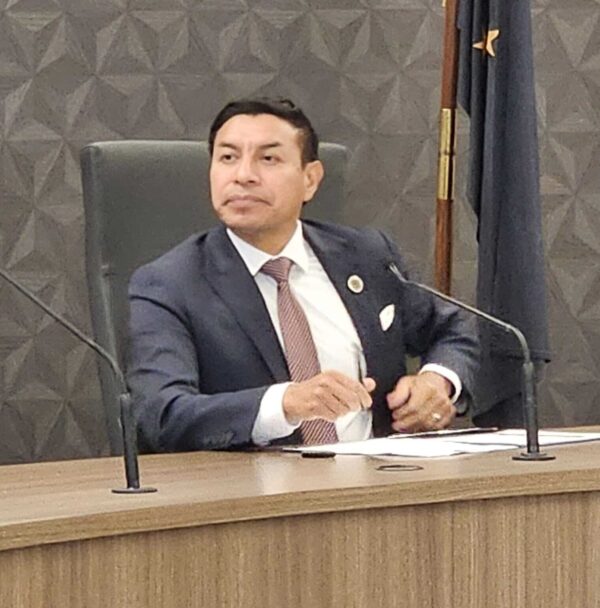
By Marilyn Odendahl
The Indiana Citizen
September 26, 2025
Indiana Secretary of State Diego Morales’ office will be hosting two additional election study meetings to present data and collect public comments on proposed changes to the scheduling of elections and the locations of polling places.
The secretary of state was mandated under House Enrolled Act 1633 to compile data as to how two specific changes to Indiana’s elections could impact cost and voter turnout. The two changes being considered are moving municipal elections from odd-numbered to even-numbered years and requiring all counties to use voting centers, rather than precincts.
Also, as part of HEA 1633, the secretary of state was directed to hold at least three public meetings. Morales, members of his team and experts from the Voting System Technical Oversight Program (VSTOP) at Ball State University have presented their findings and taken public comments since August at separate meetings in Muncie, Indianapolis and Jeffersonville.
The additional election study meetings will be:
To solicit more public feedback, the secretary of state has opened a special email where Hoosiers can submit their comments on the two topics. The email address is electionstudy@sos.in.gov.
Speaking after the Sept. 19 meeting in Jeffersonville, Morales explained the impetus for scheduling more meetings.

“We want to give the opportunity for our fellow Hoosiers in all four corners of our state … to come and express their opinions, whether they’re for or against” moving municipal elections and switching to voting centers, Morales said. “I think it’s important to hear our fellow Hoosiers in a public setting like this to give them an opportunity to express their feedback.”
The secretary of state must submit a report of the election study to the legislative council before Nov. 1. Along with the analysis and public comments from the meetings, the report will include Indiana election data collected from local election administrators and the Election Assistance Commission’s Election Administration and Voting Survey (EAVS).
Although the numbers and stats are still being collected and examined, the preliminary results are showing the state and counties could save money by holding municipal elections in even-numbered years at the same time as mid-term or presidential elections and by switching to voting centers. The cost per vote decreases and the number of poll workers needed to serve the voters declines as well.
However, the effect on voter turnout is unclear. Significantly more Hoosiers have shown up for the mid-term and presidential elections, but adding the municipal contests could create fatigue among voters and cause them to skip the local races appearing at the bottom of the ballot. Also, while voting centers do not appear to improve turnout, bad experiences, such as having a long wait in line, could sour voters’ support for the centralized polling locations.
Public reaction at the three meetings has been consistent – Hoosiers are mostly against moving municipal elections, but they are mixed on voting centers.
Attendees of the meetings were concerned that holding municipal elections during even-numbered years would risk local issues and local candidates getting overshadowed by the national races. Also, people at the meetings had varied reactions to voting centers. Some like the convenience of being able to vote anywhere in the county while others, especially those from rural counties, were worried about having to travel long distances to cast their ballots at a voting center.
Dwight Adams, an editor and writer based in Indianapolis, edited this article. He is a former content editor, copy editor and digital producer at The Indianapolis Star and IndyStar.com, and worked as a planner for other newspapers, including the Louisville Courier Journal.
The Indiana Citizen is a nonpartisan, nonprofit platform dedicated to increasing the number of informed and engaged Hoosier citizens. We are operated by the Indiana Citizen Education Foundation, Inc., a 501(c)(3) public charity. For questions about the story, contact Marilyn Odendahl at marilyn.odendahl@indianacitizen.org